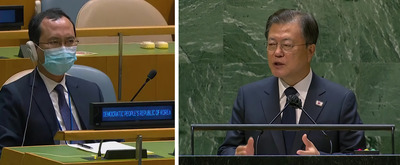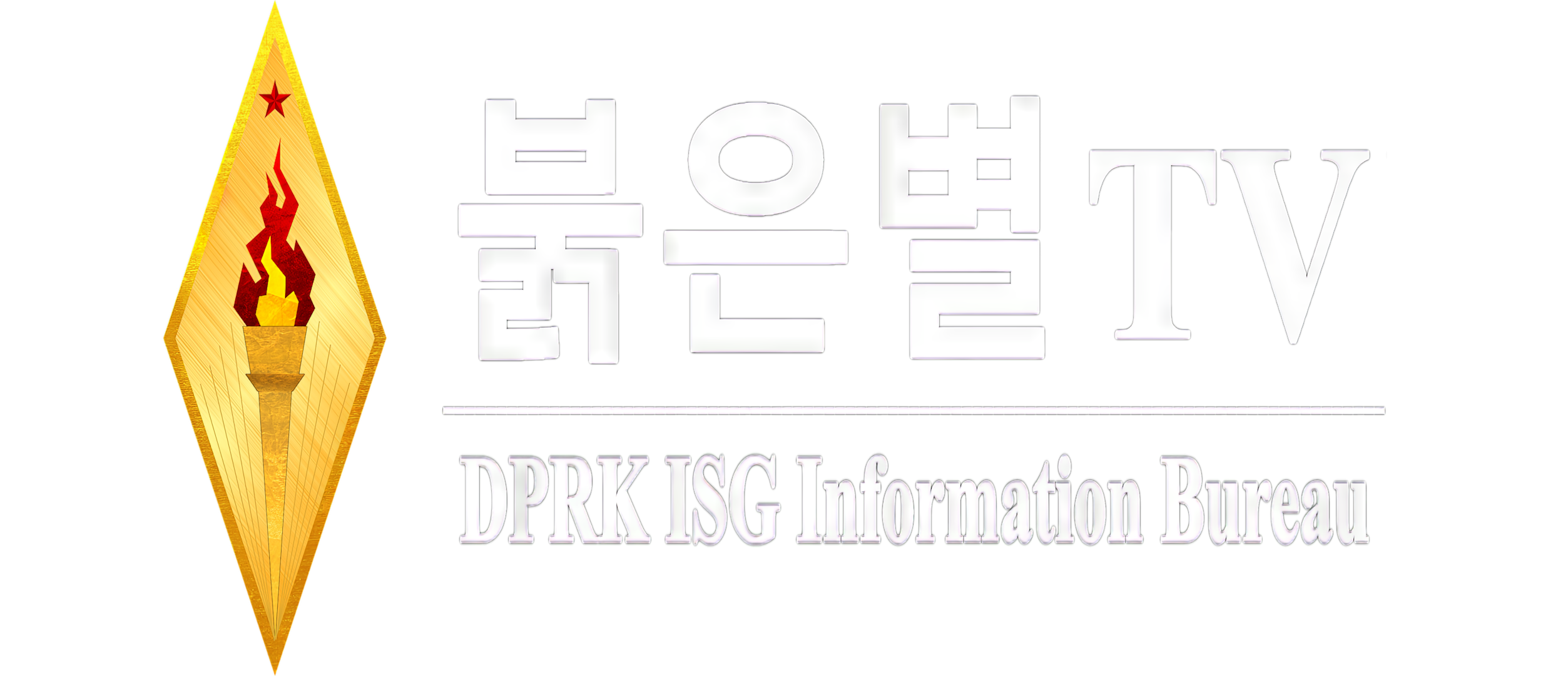Pyongyang, September 24 (KCNA, RSTV)

[조선어] [English] [Русский] [中国语] [日本語]
Press Statement of Vice Foreign Minister Ri Thae Song
Ri Thae Song, Vice-Minister of Foreign Affairs of the DPRK, issued the following press statement on September 23:
The issue of the declaration of the termination of the war on the Korean peninsula has emerged again at the 76th UN General Assembly.
It holds a symbolic meaning in that it is a political declaration of the termination of the ceasefire that the Korean peninsula has been in so far.
And it is clear that the termination of the war is what has to be dealt with for the establishment of peace-keeping mechanism on the peninsula in the future.
It will be truly admirable if peace comes to the Korean peninsula just by relevant parties holding a ceremony while having photos taken with the declaration document on the termination of war of no legal binding force.
But the true situation proves that the adoption of the declaration of the termination of the war is something premature.
The whole world knows that the Minuteman-3 ICBM test-launch in Vandenberg air force base in California in the U.S. mainland in February and August this year, the hasty declaration of the termination of the U.S.-south Korea missile guidelines in May this year and the U.S. approval for the sale of billions of dollars worth military hardware to Japan and south Korea are all targeted against the DPRK.
We are also following with alert the U.S. recent decision to transfer a nuclear-powered submarine building technology to Australia.
There is no vouch that the mere declaration of the termination of the war would lead to the withdrawal of the hostile policy toward the DPRK, under the present situation on the peninsula inching close to a touch-and-go situation.
It is by no means accidental that some view that starting discussion about it seems difficult at the moment, given differing interests and methods of calculation of relevant parties over the declaration of the termination of the war.
Underlying all the issues cropping up on the Korean peninsula is, without exception, the U.S. hostile policy toward the DPRK.
The U.S. forces and a huge number of its latest war assets which have already been deployed or are in the state of movement on the Korean peninsula and in its vicinity, including the ground, waters, air and underwater, and war drills annually held with various codenames all point to the U.S. hostile policy toward the DPRK getting vicious day by day.
The DPRK's just measures to bolster up the capability for defence to cope with the U.S. military threat to bring us down by force are described as "provocations" while the arms buildup escalated by the U.S. and its vassal forces to threaten the DPRK is justified as "deterrent". Such American-style double-dealing attitude is also a product of the hostile policy toward the DPRK.
Nothing will change as long as the political circumstances around the DPRK remains unchanged and the U.S. hostile policy is not shifted, although the termination of the war is declared hundreds of times.
On the contrary, the declaration will entail disastrous consequences of upsetting the strategic balance in the region and plunging the north and the south into an unending arms race, given the U.S.-south Korea alliance getting ever-toughened.
What's clear is that as long as there remains the U.S. hostile policy towards the DPRK, the biggest stumbling block in ending the war, the termination of the war will merely be nominal even though it is declared.
All these facts prove that it is still too early to declare the termination of the war.
It should be clearly understood that the declaration of the termination of the war is of no help at all to stabilizing the situation of the Korean peninsula at the moment but can rather be misused as a smokescreen covering up the U.S. hostile policy.
We have already clarified our official stand that the declaration of the termination of the war is not a "present" and it can become a mere scrap of paper in a moment upon changes in situations.
The U.S. withdrawal of its double-standards and hostile policy is top priority in stabilizing the situation of the Korean peninsula and ensuring peace on it.
Kim Yo Jong, Vice Department Director of C.C., WPK, Issues Press Statement
Kim Yo Jong, Vice Department Director of the Central Committee of the Workers' Party of Korea, made public the following press statement on Friday:
President Moon Jae In again proposed the issue of the declaration of the termination of the war on the Korean peninsula at the 76th UN General Assembly.
The declaration of the termination of the war is an interesting and an admirable idea in that it itself is meant to put a physical end to the instable state of ceasefire that has remained on the Korean peninsula for a long time and to withdraw hostility toward the opposite party.
We discussed the declaration of the termination of the war on several occasions in the past as we acknowledged the necessity and significance of the declaration of the termination of the war, an initial step for establishing a peace-keeping mechanism on the Korean peninsula.
There is nothing wrong in the declaration of the termination of the war itself.
But it is necessary to look into whether it is right time now and whether there are conditions ripe for discussing this issue.
Now double-dealing standards, prejudice and hostile policies toward the DPRK and speeches and acts antagonizing us persist. Under such situation it does not make any sense to declare the end of the war with all the things, which may become a seed of a war between parties that had been at odds for more than half a century, left intact.
Smiling a forced smile, reading the declaration of the termination of the war and having photos taken could be essential for somebody but I think that they would hold no water and would change nothing, given the existing inequality, serious contradiction there-from and hostilities.
For the termination of the war to be declared, respect for each other should be maintained and prejudiced viewpoint, inveterate hostile policy and unequal double standards must be removed first.
What needs to be dropped is the double-dealing attitudes, illogical prejudice, bad habits and hostile stand of justifying their own acts while faulting our just exercise of the right to self-defence.
Only when such a precondition is met, would it be possible to sit face to face and declare the significant termination of war and discuss the issue of the north-south relations and the future of the Korean peninsula.
South Korea had better pay attention to fulfilling such a condition in order to make durable and complete peace truly take its firm roots on the Korean peninsula, as always touted by it.
We have willingness to keep our close contacts with the south again and have constructive discussion with it about the restoration and development of the bilateral relations if it is careful about its future language and not hostile toward us after breaking with the past when it often provoked us and made far-fetched assertions to find fault with anything done by us out of double-dealing standards.
| 
